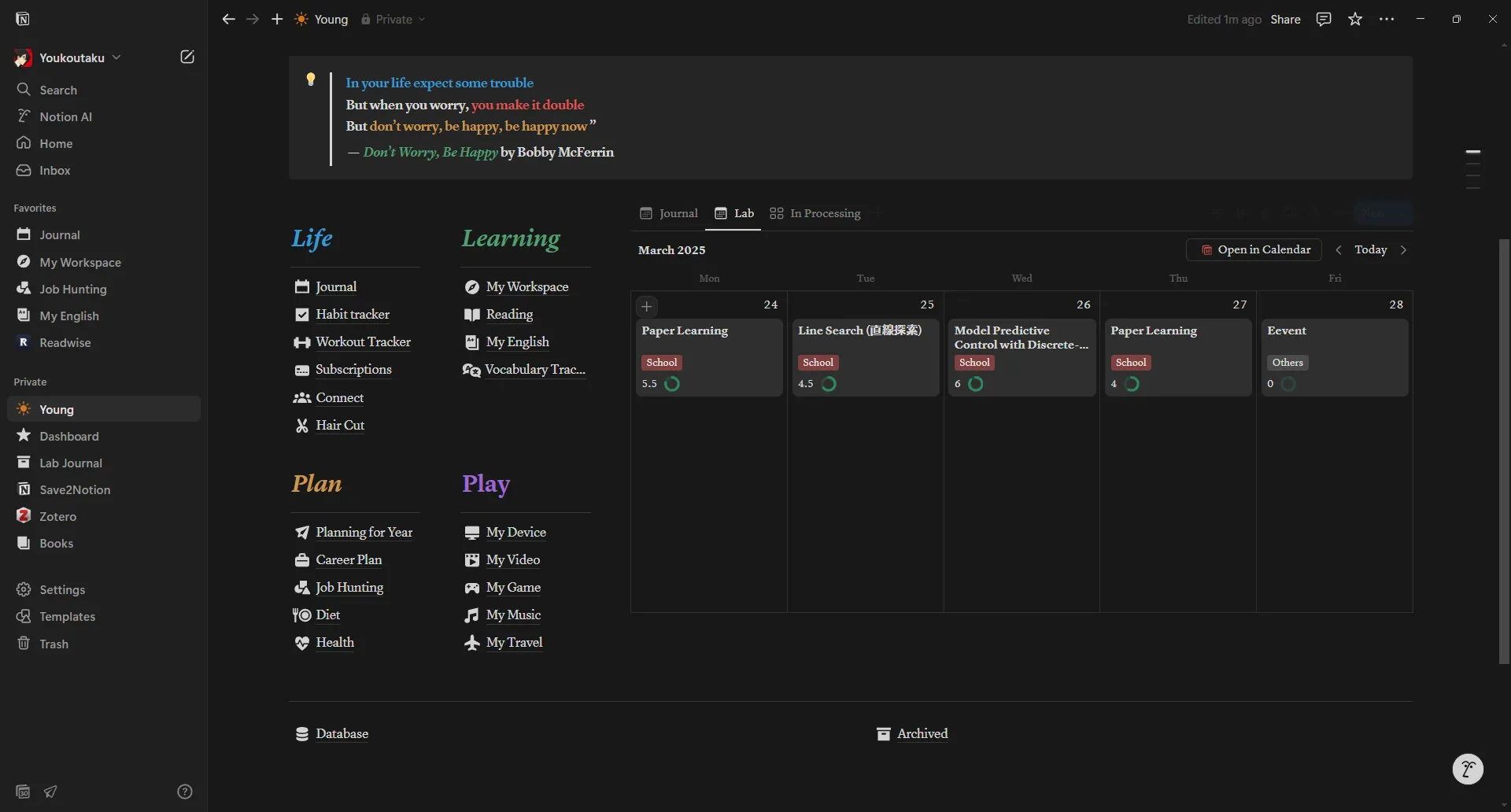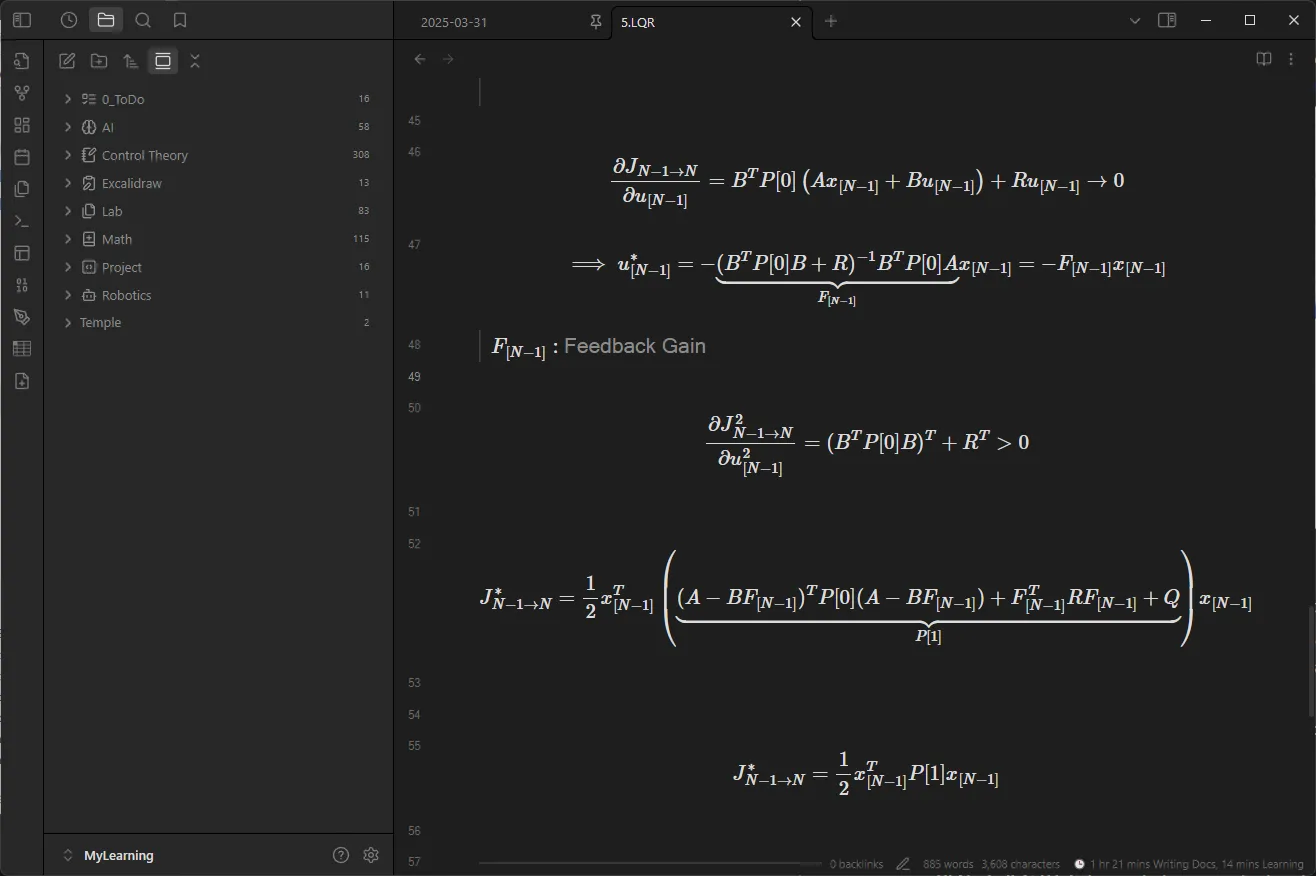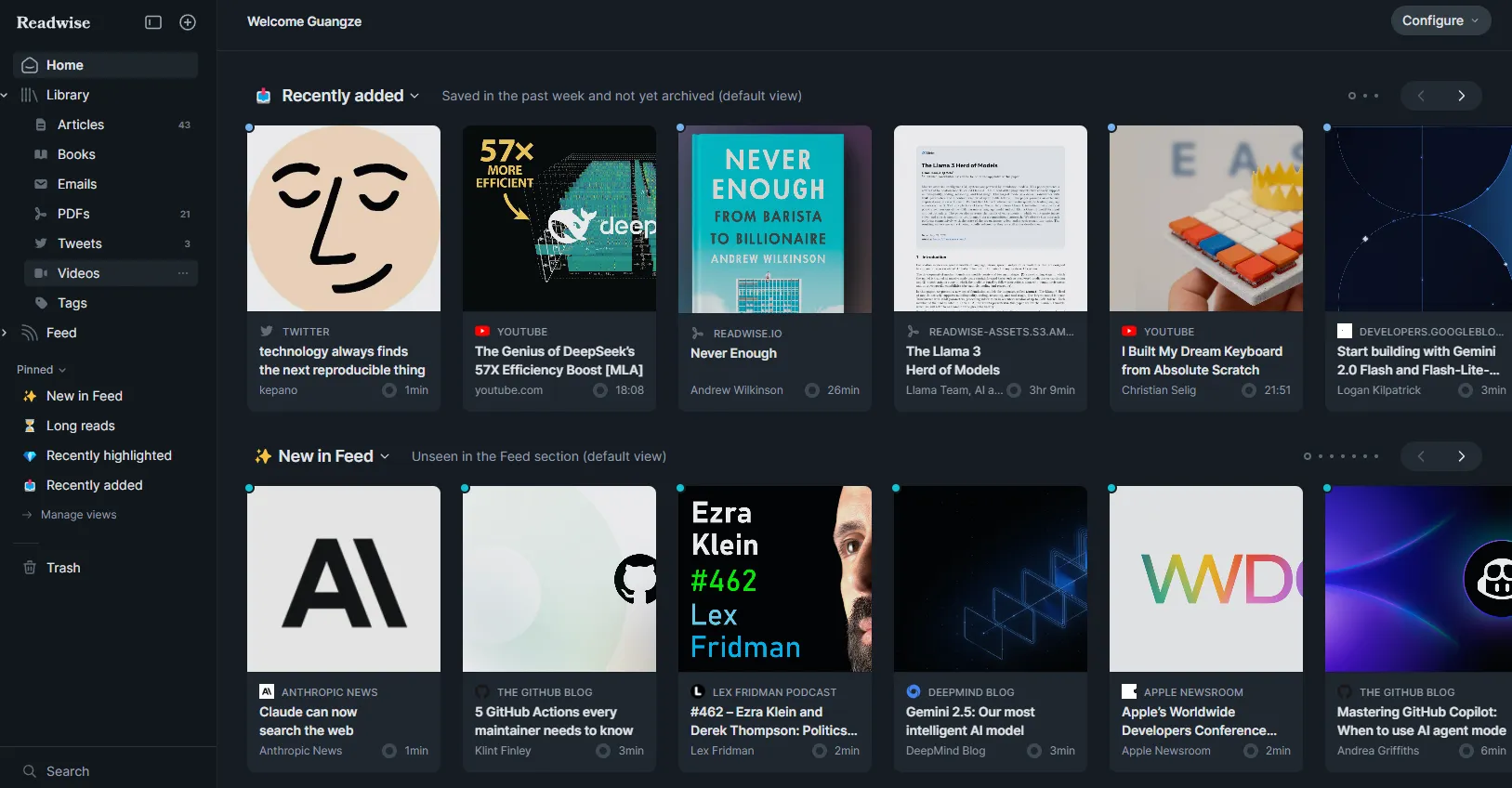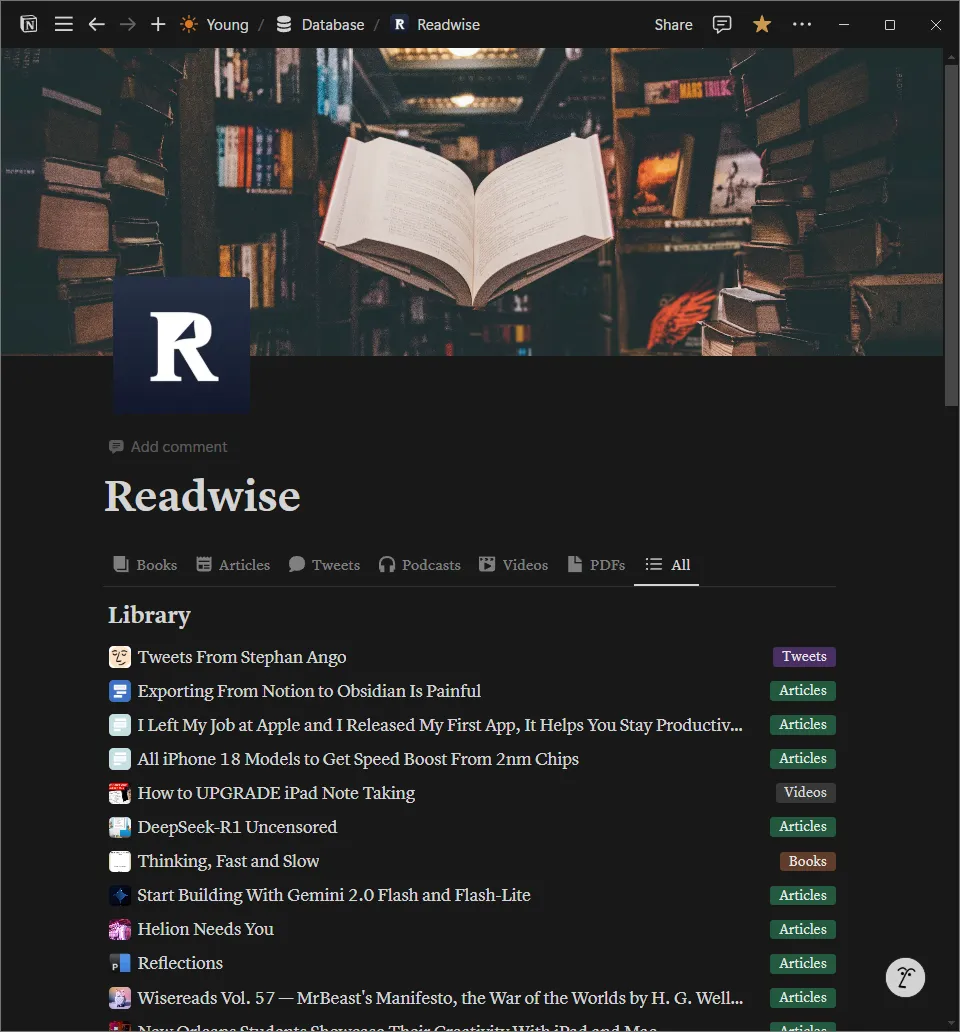My Knowledge Management System | Zotero, Obsidian, Readwise, Notion
My Knowledge Management System | Zotero, Obsidian, Readwise, Notion
In today’s information-rich world, developing a personalized knowledge management system is essential for anyone engaged in academic research, continuous learning, and maintaining balanced productivity. After much experimentation, I’ve developed a cross-platform workflow that effectively bridges my academic research, personal learning journey, and daily life management. Here’s how I’ve structured my digital ecosystem.
1. Academic Research Workflow 💻
My research workflow revolves around two cornerstone software that form the foundation of my academic productivity. I primarily do research on a desktop.
1.1. Zotero: My Research Library
Zotero serves as the central hub for all my research documents. Here’s how I use it:
- PDF Management: All academic papers and technical books are stored and categorized here with tags.
- Annotation & Reading: I annotate and highlight papers directly within Zotero, capturing key contents during my reading.
- Research To-Do Lists: Using Zotero plugin Notero, my reading queue and priorities sync to Notion, giving me a clear overview for tasks.
1.2 Obsidian: My Knowledge Laboratory
Obsidian acts as my personal knowledge lab where raw ideas become structured knowledge:
- Research Notes Hub: I take detailed notes from Zotero and web resources.
- Mathematical Notation: As a control systems and robotics student, I heavily use MathJax for equations.
- Bidirectional Linking: Easy to connections between concepts.
1.3 Publication Workflow
When research reaches the publication stage, I rely on the following tools:
- GitHub: For version control and blog uploads.
- VSCode + Tex / Overleaf: For preparing formal LaTeX documents.
2. Personal Learning 💻 &📱
Beyond academic research, I maintain a continuous learning system:
2.1 Content Discovery
- Readwise Reader: My primary tool for blog RSS feeds, YouTube videos, Reddit discussions and X content.
- Inoreader: For staying current with world events by news RSS feeds.
- E-reading: I use Kindle and Apple Books for longer-form content.
2.2 Readwise: Knowledge Integration
The magic happens when these inputs are processed:
- Readwise: Collects highlights and annotations across all platforms.
- Integration: My highlights and notes automatically sync to Notion and NotebookLM.
3. Life Management System 💻 &📱
A productive mind requires an organized life. Here is how I manage my day-to-day life:
3.1 Calendar & Task Management
- Apple Calendar ⇔ Google Calendar ⇔ Notion Calendar: Handles all fixed-time commitments like meetings and courses Synced for cross-platform consistency
- Notion Tasks board: Dashboard to track my project, research and learning.
3.2 Notion: Journal & Reflection
- Journal: Both lab work and personal reflections are saved in Notion
- Visible on Calendar: I link Notion database to Calendar for easy review.
The Philosophy Behind My System
This setup isn’t just about using the right tools—it’s about creating an external brain that augments my thinking. By maintaining a clear separation between academic research, personal learning, and life management, I can focus on each domain without distraction, while enabling cross-domain insights when needed.
- Zotero serves as the primary library that saves all my academic documents.
- Obsidian excels at academic work due to its support for mathematical notation and offline functions.
- Notion acts as a cloud-based hub, connecting various information domains through task management, journal, research planning and more on multi platforms.
- Readwise functions as a collector, ensuring that tracking valuable information. Readwise Reader is as filter, extracting highlights from various sources.
💡One notable advantage is that Readwise is the only paid service in this entire system, making the setup both cost-effective and highly functional.
As my needs evolve, this system continues to adapt, but the core philosophy remains the same: Capture everything that interests me, process information thoughtfully, and create meaningful connections between ideas.
I’ve kept this overview concise, but there are countless tips and advanced features for Obsidian, Notion, and Zotero that can improve your workflow. You can find a lot of videos or articles about them. But if you’re interested in how I’m using these tools, feel free to ask!
What knowledge management system have you developed? I’d love to hear about your tools or approach in the comments below!




